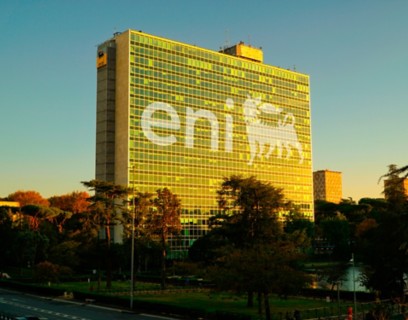- SUSTAINABILITY

The governance of sustainability
Our Corporate Governance system is based on the principles of integrity and transparency and reflects our willingness to integrate sustainability into our business model and corporate strategy. We identify sustainable success as the objective that guides the actions of the board of directors and is achieved in the creation of long-term value for the benefit of shareholders, taking into account the interests of other stakeholders relevant to the company. Eni’s Board of Directors plays a central role in the management of issues related to climate change and sustainability issues; its activities are supported by the Sustainability and Scenarios Committee (CSS) and by specific Committees.
Roles and responsibilities on sustainability issues
| Board of Directors | |||
| Defines: • The Corporate Governance System • the fundamental lines of the organisational, administrati ve and accounting set-up and the guidelines of the internal control and risk management system • the strategic lines and objectives, pursuing their sustainable success and monitoring their implementation, as proposed by the CEO • with a view to pursuing sustainable success, in line with the Governance Code, it promotes dialogue with shareholders and other stakeholders relevant to the Company. |
Reviews or approves: • The fundamental outlines of the internal Regulatory System and the main corporate regulatory instruments • the Strategic Plan (four-year plan and medium to long-term plan), which includes industrial business targets, economic and financial results and sustainability targets, including medium/long-term emission targets • the main risks and impacts, including socio-environmental ones • the Policy for the Remuneration of Directors and managers with strategic responsibilities • financial and sustainability reporting. |
||
| Chief Executive Officer | Chairman of the Board of Directors | ||
| • The person in charge of managing the Company, without prejudice to the tasks reserved to the Board • implements the resolutions of the BoD, informs and submits proposals to the BoD and to the Committees • in charge of establishing and maintaining the Internal Control and Risk Management System. |
• Central role in the system of internal controls • leads the BoD’s activities and ensures that Directors are trained on sustainabili ty topics. |
||
| Committees | |||
| Sustainability and Scenarios Committee It assists the BoD with preparatory, consultative and advisory functions on scenarios and sustainabilty issues. This means processes, initiatives and activities to oversee the Company's commitment to Sustainable Development along the value chain, in particular on issues of climate transition and technological innovation, environment and energy efficiency, local development, human rights, integrity and transparency, and D&I. |
Control and Risk Committee It supports the BoD in evaluations and decisions relating to the internal control and risk management system, and in particular in the quarterly review of the main risks, including ESG risks, and the approval of periodic financial and sustainability reports. |
Remuneration Committee It informs, makes proposals and provides advice to the Board of Directors on remuneration topics, and in this context proposes annual and long-term rewarding systems, defining their objectives, also supporting the guidelines adopted on sustainability topics. |
Nomination Committee It supports the BoD in the appointments, in the periodic assessments of directors’ requirements and in the board review process, formulating opi nions for the BoD on the composition of the BoD and of its Committees, also with respect to the required competencies. |
Our supply chain has a common commitment to the energy transition
Recognising the key role of the supply chain in the transformation process, we share values and a commitment to sustainable development.

Eni’s Model
Eni’s Corporate Governance has a traditional structure and is founded on the principles of integrity, transparency and fairness.
The relationship with stakeholders
Fairness, legality, traceability, respect for human rights, inclusion, gender equality, protection of the environment and of local communities are some of the principles that guide us in building long-term relationships in the countries where we operate. Continuous dialogue and the sharing of our choices are fundamental elements of our strategy and affect all company functions and roles. To strengthen mutual trust, we use the company's Stakeholder Management System (SMS), which maps over 7,400 stakeholders according to relevance in the areas where we operate. The SMS application not only tracks requests and complaints received, but also takes into account the response actions taken by Eni, with the aim of resolving requests and complaints in a timely manner. The document below provides information on how each stakeholder category is engaged, with what purpose, and the outcomes of this dialogue.
Stakeholder engagement activities
See the list of main activities with our stakeholders.
The collection and handling of complaints
Grievances are complaints or claims raised by an individual or a group of individuals relating to actual or perceived, current, ongoing or potential accidents or damages or other environmental or social impacts caused by the company's operational activities. Eni has defined its own Grievance Mechanism (GM) to receive, investigate, respond to and resolve complaints or grievances in a timely, fair and consistent manner. The Grievance Mechanism is a key component of building trust-based relationships with stakeholders, as it allows for the early identification of potential elements of disagreement, thus enabling the reduction of business risks. Eni's GM is based on the International Guidelines on the subject (published by IPIECA) and has been active in all subsidiaries since 2016.
Host communities are informed about the opportunity and ways to make complaints and inquiries about Eni's activities. In some locations, there are Community Liaison Officers, whose task is to help gather evidence to prevent potential grievances by listening directly and continuously to members of the host communities.
We also require our suppliers, contractors and sub-contractors to make their own grievance mechanism available to the workers and communities they interact with on behalf of Eni. During 2023, we extended the application of the GM to new businesses as well, in line with the transition path undertaken. In 2024, we received 61 grievances and resolved 43 (of which 34 were received in 2024). Most grievances concerned community relations and environmental aspects, land management and supplier management.
In the event of receiving complaints, Eni will process personal data in accordance with the applicable data protection legislation and in line with the provisions set out in the privacy notice published at the bottom of this web page. Stakeholders, in their capacity as complainants, are requested to refrain from providing special categories of Personal Data (such as data revealing racial or ethnic origin, political opinions, religious or philosophical beliefs, trade union membership, and/or data concerning health, sex life, or sexual orientation), unless they consider such data to be strictly necessary for the proper handling of the complaint.
Should the complaint submitted contain special categories of Personal Data, such data will be processed on the basis of the consent given by the stakeholder at the time the complaint is submitted to the Company.
Grievances received by topic⁽ᵃ⁾
| 2023 | 2024 | ||
|---|---|---|---|
| Grievances received by topic(a) | 140 | 61 | |
| Access to energy | (number) | 5 | 0 |
| Land Management | 10 | 8 | |
| Education | 10 | 2 | |
| Employment | 16 | 3 | |
| Infrastructure | 2 | 0 | |
| Community management | 66 | 23 | |
| Supplier management/Agreements | 7 | 9 | |
| Partnership | 0 | 0 | |
| Social and economic impacts | 0 | 0 | |
| Economic diversification | 9 | 2 | |
| Environmental Management | 15 | 13 | |
| Other | 0 | 1 | |
| (a) The grievances received by Eni’s subsidiaries are classified into more than 200 sustainability topics within the company’s SMS - Stakeholder Management System. The consistency of the various grievance themes can vary from year to year, both in type and number. | |||
Sustainable choices guided by a shared vision
We conduct our day-to-day business responsibly, fairly, correctly and transparently, backed by a corporate governance plan that guides us in building trust with our stakeholders.
Eni for 2024. Check out our interactive feature
Read the stories, case studies and testimonials behind our contribution to a socially equitable energy transition in the Sustainability Report.



















